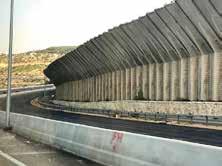
3 minute read
International
International Children pay a terrible toll in Palestine
Mohammed Aziz reports from an NEU delegation to Palestine.
THE motivation behind my trip to Palestine was educational. I decided to witness the occupation for myself after reading about American peace activist Rachel Corrie, who was killed in Gaza in 2003 by a bulldozer while defending a Palestinian home from destruction by the Israeli army.
Our NEU delegation during October half-term included time in the occupied West Bank and East Jerusalem. One of the most insightful parts of my visit was to Askar refugee camp, in Nablus, in the occupied West Bank, where sport and cultural centres provide vital lifelines for local children.
My visit to a school in Ramallah the following day was tearful, with 50 kids to a classroom and a shortage of teachers. We were told that wild boars are released in and around the camp by settlers to scare the children.
Palestinian children cannot travel to seek education. In several towns we witnessed children stopped, searched and questioned at checkpoints by soldiers with automatic rifles at the ready. We heard of armed raids on schools and tear gas cannisters thrown into classrooms.
The Shabbat school in Hebron was a house converted into a very crowded school – placements are oversubscribed but every inch is put to good use. Children are eager to show off a place they are proud of, which provides them with a positive outlet.
However, Defense for Children International Palestine (DCIP) told us endless stories of children being killed by Israeli soldiers or attacked by settlers. DCIP documents show children as young as 12 being arrested under military detention. They are taken from their homes in the night, handcuffed and blindfolded, without explanation. No parents or professionals are present during interrogation. Military court hearings are in Hebrew and the conviction rate is overwhelming.
How many acts of violence and brutality can we tolerate? We have a collective responsibility to stand against injustice. I urge readers to visit Palestine and see for themselves the inexcusable practices of the Israeli Government. A huge thank you to the NEU – I am now very much an activist for the Palestinian cause.
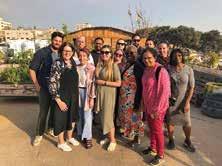
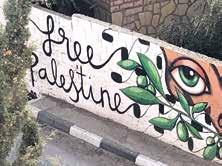
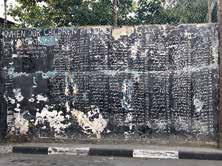
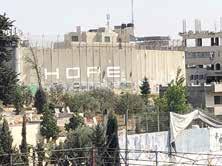
Photos from NEU delegates’ recent visit to Palestine
‘Humbling but hopeful’ to witness Cuba facing its many challenges
IN October, 24 NEU members spent halfterm on the NEU’s delegation to Cuba.
Cuba represents something important for those of us who believe that another way is possible. It was humbling and hopeful to witness an education system in which students and educators truly thrive.
There’s something about Cuba – the warm smiles and welcoming gestures, the sense of community we felt at the schools we visited. Here are a few facts: n In Cuba, women – including Black women – occupy most of the leadership positions of both our sister union, the SNTECD, and the schools we visited. n The education minister, Ena Elsa Velázquez Cobiella, has actual experience in education. n Education laws have to be approved by trade unions. n Education is free up to master’s level.
Nevertheless it was heartbreaking to see the difficulties that Cuba is facing in the wake of the pandemic. Public funds were diverted to healthcare, and a recent devastating hurricane has had an impact on food supply, not to mention the ongoing illegal US economic blockade entering its 60th year. Basic school supplies are scarce.
In many ways Cuba is triumphant, confronting its many challenges, but people’s suffering cannot be ignored and international solidarity is more important than ever.
By Melina Irvine n Viva La Educación is raising funds for essential classroom and teaching equipment. Visit vivaeducacion.org.uk/about/










